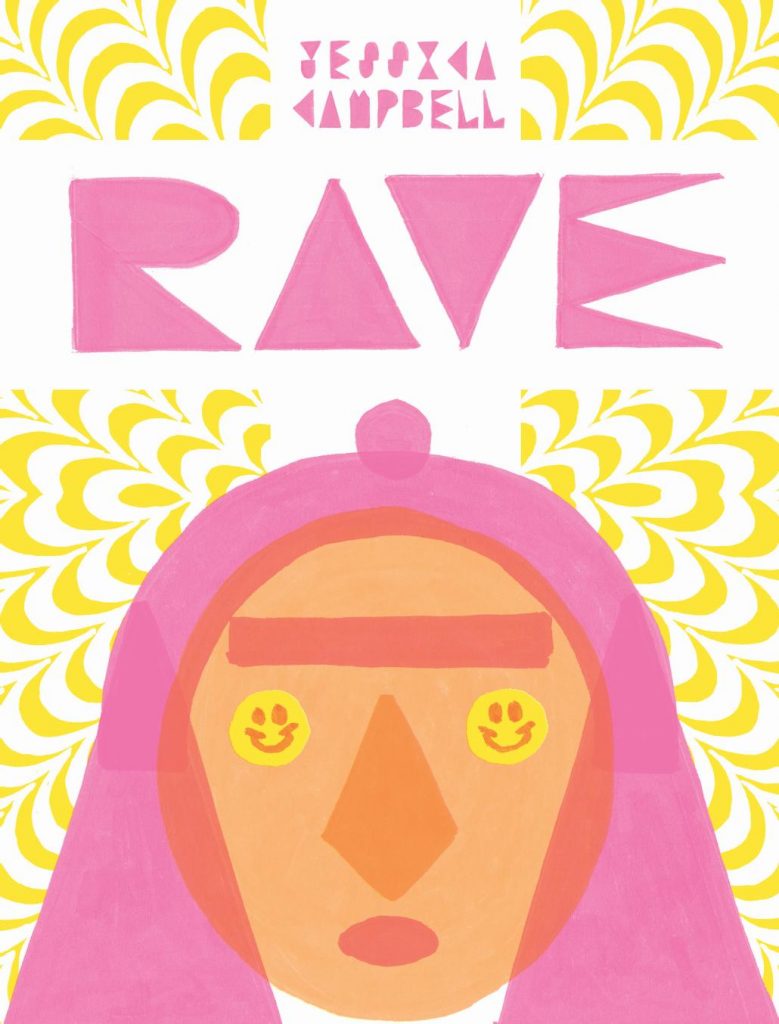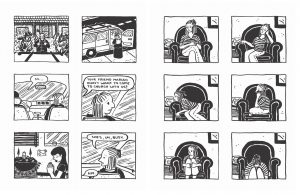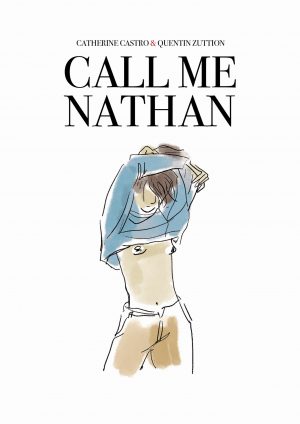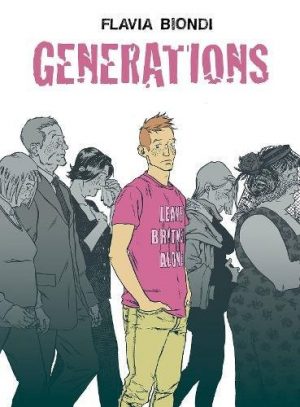Review by Frank Plowright
Growing up to find your own way in the world is difficult enough without continual contradictory messages, and that’s what Jessica Campbell explores with Rave.
Lauren is fifteen and has been raised on strict Christian principles, which are at odds with much of what she sees outside home and church. We first meet her at church during a really cringe-inducing scene of the pastor having his fifteen year old pregnant daughter hauled to the front of the congregation to claim she’s found her way again with Jesus. When Lauren is paired with the far more worldly wise Mariah on a school project, she learns Mariah has a very different outlook on life, identifying as Wiccan and seeing no harm in broadening her experiences. For Lauren there’s an allure to this, but it increasingly conflicts with what she’s been told to believe as right.
That the art is black and white under such a vivid cover may seem subconscious recognition of the thematic poles explored in Rave, but Campbell’s is a far more textured creative voice, showing the downsides of each lifestyle. Importantly, she doesn’t take the obvious and easy route of ridiculing Christian beliefs, just pointing out their priorities come at the cost of restricting people’s lives, although toward the end judgemental hypocrisy features. Lauren is rarely not the focus, and Campbell accentuates her uncertainties via multiple pages like the sample art, where she’s conflicted at how her beliefs combat her inclinations. It also features the subtle insight of Lauren being restricted to a landline when her generation almost all have mobile phones with their easy access to other opinions and worlds. Campbell’s art isn’t the most polished you’ll see, but copes with the emotional necessities of her story, and is inventive when it comes to choosing breaks from the six panel grid for emphasis.
It’s likely that a reader’s own beliefs will shade their interpretation of Rave, although ultimately, whatever side of the coin they land on, not many happy people feature. Lauren is sympathetic throughout, but her story ends as it begins, in ambiguous uncertainty.





